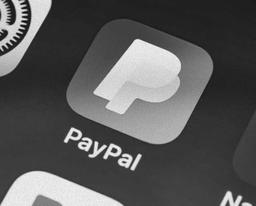How to Contact Capital One Customer Service

Capital One is a financial corporation that provides banking, credit, and associated financial services to customers in America and around the world. The company initially started as a card issuer in the mid-1990s and has become the fifth-largest bank in America and the eighth largest bank globally.
Capital One customers are reportedly satisfied with how the bank does business, with the American Customer Satisfaction Index giving Capital One a four-star rating in customer satisfaction. If you need to reach a customer service agent at Capital One, you have a variety of options. You can make a phone call, send an email, snail mail, or even reach out on social media platforms. However, while you are at this, you want to watch out for persons masquerading as Capital One customer service agents.
How Do I Contact Capital One Customer Service via Phone
The direct line to Capital One's customer service is (800) CAPITAL or (800) 227-4825. Calling is typically one of the fastest ways to reach an agent and get efficient service. If you have a specific complaint or inquiry, call these designated lines instead:
- Need financial services while abroad, call (904) 934-2001
- Get online banking support for personal and small businesses, call (866) 750-0873
- Report fraud or get fraud protection, call (800) 427-9428 or (800) 239-7054
- Collect call or report a lost or stolen card, (804) 934-2001
- Get guidance on making an initial deposit, call (800) 219-7931
- To report the death of a cardholder, call (877) 357-5659
- To get a small business credit card, call (800) 867-0904
- To find a branch that offers business accounts services near you, call (888) 755-2172
- For merchant services, call (888) 754-4371
The Pros of Contacting Capital One Customer Service by Phone
Calling can be off-putting and long, but here are some reasons you should consider calling Capital One customer service representatives by phone:
- You have round-the-clock service, so you can call at any time and count on getting a customer representative to attend to your needs.
- You can get the individualized attention that solves all your issues and queries.
- It is an excellent way to get in touch with a knowledgeable and helpful representative. The representatives are friendly and knowledgeable about one of the most popular banks in America.
- It is quick and easy to go through a list of questions or concerns that you may have without all of the confusion and effort that typically goes into contacting customer service via other means.
The Cons of Contacting Capital One Customer Service by Phone
Although reaching a customer representative is best done via phone call, this medium comes with some disadvantages, which are:
- You may get a rude customer service representative. While most customer service representatives are polite and helpful, not all are courteous.
- The wait time is long during high traffic periods.
- You may not always get the same representative each time you call. When this happens, you may have to repeat your issues.
How Do I Contact Capital One Customer Service via Live Chat
You can talk to Capital One customer service using the Live Chat feature on the bank's official website. Live Chat is available round-the-clock, so you will always be able to reach out and speak with a knowledgeable representative at any time of the day. However, you will meet a robot named Eno first. Eno responds to queries and questions like you are having a conversation with a friend or family member. If Eno cannot answer your questions, you will get a human agent.
The Pros of Contacting Capital One Customer Service by Live Chat
- A live chat agent will answer your questions and concerns quickly.
- Live chat is available at any time of the day.
- This live chat agent is amiable and knowledgeable about any topic you need to discuss, and she can help you with your needs in the most efficient manner.
The Cons of Contacting Capital One Customer Service by Live Chat
- It is less helpful if your issue is causing you a lot of emotional stress. A human voice sounds much better in such a case.
- It is less helpful if you have a complicated issue that requires a deeper investigation on the company's part.
- Besides getting Eno to direct you to a human agent, the wait time is also quite long.
How Do I Contact Capital One Customer Service via Social Media
Capital One understands the power of interacting with customers via social media. Concerned customers can always reach a customer service agent via their social media handles Twitter @askcapitalone, capital one @capitalone, and Instagram @capitalone.
The Pros of Contacting Capital One Customer Service on Social Media
- The interaction on social media makes you feel part of a community, especially when you see that other customers have similar complaints or questions as you.
- Social media helps you avoid the automated phone menu system when trying to fix a problem or ask for help.
- Capital One offers round-the-clock customer service through its social media handles, with messages typically answered in under an hour.
The Cons of Contacting Capital One Customer Service on Social Media
- Even at one hour, the average response time, this method is less suitable for urgent issues.
- A security breach gives hackers access to the confidential information shared with customer service.
- Agents may ignore you if your complaints are deemed harassment or a form of cyberbullying.
- Scammers routinely target bank customers who complain publicly.
How Do I Contact Capital One Customer Service via Mail
Capital One customer service does not have a dedicated email address for complaints and inquiries. So call, chat with Eno, or reach out to them on social media first. You may also write a letter describing your issue and mail it to the company. This method is not ideal if you need urgent assistance.
Capital One
Attn: General Correspondence
P.O. Box 30285
Salt Lake City
UT 84130-0287
If you need to complain about a discrepancy in payment, send mail to the address below:
Capital One
Attn: Payment Investigations
P.O. Box 30287
Salt Lake City
UT 84130-0287
To complain about a Credit Card Charge, forward the mail to the address below:
Capital One
Attn: Disputes
P.O. Box 30279
Salt Lake City
UT 84130-0279
To report a credit card fraud, send a mail to:
Capital One
P.O. Box 30277
Salt Lake City
UT 84130-0277
Common Types of Capital One Customer Service Scams
Capital One customer service scams are done by individuals who impersonate the bank's employees to get sensitive information from customers. They may use sensitive information about your account to steal your savings in the bank or sell the information to higher-level fraudsters on the black market.
Capital One Phone Scams
Capital One phone scam, also known as vishing, is when an impostor calls a customer directly or automated calls (robocalls). The goal is to convince the unsuspecting customer to give up their account credentials, usually to resolve an issue that was made up or claim a reward. Scammers typically do this via Caller ID spoofing, a technology that lets scammers change their phone numbers to appear like one of the aforementioned customer service numbers.
Capital One recommends using "CallerTracking" to spot and avoid spoofed calls.
Furthermore, if you receive a suspicious phone call where an automated system asks you for your Capital One account credentials, hang up immediately. Capital One does not call account holders out of the blue. So, do not press any button to continue an unsolicited call or enter your account credentials.
Capital One Email Scams
Email Phishing is a type of fraud in which scammers send you an email that appears to come from Capital One. The email typically asks for your personal information and bank details. Most commonly, however, the goal is to get you to click any of the links in the email, open an attachment, or install malicious software. This way, scammers can steal your personal information without you knowing.
Capital One does not send unsolicited emails asking you to act immediately. To protect yourself against scam emails:
- Do not open a link or an attachment until you have confirmed the sender's authenticity.
- Always make sure that your security software is updated.
- Always set a custom password for your Wi-Fi router.
- Stay away from checking out websites that appear suspicious.
Capital One Scam Texts
Phishing by text messages is also known as smishing. Here, an impostor sends a text message prompting you to provide some information, typically your details and bank credentials. These texts may appear in your inbox or pop up on your screen.
A common line is "Capital One Account Alert: Urgent Action Required.” Of course, there are variations, but all tell the user that their account will be suspended for inactivity and offers an option to click either "Yes" or "No." It doesn’t matter what you click because the page will redirect you to a fake website where you will be prompted to provide your name, phone number, address, or bank login details.
Here are some ways to avoid scam texts:
- Always ignore messages that appear to be sent from Capital One, especially when it prompts you to take immediate action.
- Avoid calling back the sender; it’s a tactic to reel you in.
- Keep your devices and security software up to date.
- Activate the filter option on your phone to block messages from unknown senders.
- Install anti-malware software on your devices.
How to Identify a Phishing Scam
You would know you are not relating with a Capital One customer representative if:
- The phone call, email, or text sounds urgent and requires an immediate response.
- The email or text uses generic greetings like "Dear client" instead of your full name.
- The caller requests that you validate some information, especially your Social Security Number, card number, or pin.
- The email address contains spelling errors like capitallone.com, captalone.com, or captialone.com (notice the double letters and omissions).
- The link invites you to click on a link to update payment or your account information.
- The link sent via email or text redirects you to a site where you will need to input your personal information before accessing your account.
Does Capital One Customer Service Do Callbacks?
Yes. When a Capital One representative cannot address an issue on the phone at the time of contact, they will usually offer a callback number and ask for a preferred time that would be convenient for the customer. They might also ask if there are any other issues they can help with during that same call. In other words, no one can receive unsolicited calls from Capital One. Customers are the ones to initiate the ring, and the customer representative schedules a phone appointment.
Reasons to Contact Capital One Customer Service
Capital One is the largest credit card issuer in the United States and has several products and services, including customers loans, credit cards, and mortgages. Here are top reasons people contact Capital One customer service:
- Credit card or bank account problems
- Lost or stolen debit cards
- Fraudulent transactions
- Declined credit limit increase requests
- To request a transfer of funds
- General account inquiries


